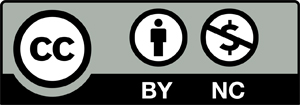Complaint Policy
The guidelines released by the committee on Publication Ethics (COPE) are used to enhance the policies, or actions of the JAARU editorial board. To enhance JAARU, complaints are welcome as they provides opportunity and boost the improvement of the journal. For fair complaints and those complained about, the steps are summarized below:
Definition
Our definition of a complaint is as follows:
- The complainant defines his or her expression of unhappiness as a complaint.
- We infer that the complainant is not simply disagreeing with a decision we have made or something we have published (which happens every day) but thinks that there has been a failure of the process - for example, a long delay or a rude response - or a severe misjudgment.
- The complaint must be about something that is within the responsibility of the JAARU - content or process.
JAARU is aware of the complaints stated below:
- Authorship complaints
- Plagiarism complaints
- Multiple, duplicate, concurrent publication/simultaneous submission
- Research results misappropriation
- Allegations of research errors and fraud
- Research standards violations
- Undisclosed conflicts of interest
- Reviewer bias or competitive harmful acts by reviewers
How to make a complaint?
The procedure outlined below aims to be fair to those making complaints and those complained about.
- Complaint will be acknowledged within seven working days.
- If possible a definitive response will be made within 30 working days. If this is not possible an interim response will be given within the same time frame. From that time on further interim responses will be provided until the complaint is finally resolved.
- If the complainant remains unhappy, complaints should be escalated to the Editor-in-Chief, whose decision is considered final.
What to do
Complaints about editorial content should be made as soon as possible after publication, preferably in writing by email to: [email protected]
JAARU contains a number of double-blind peer-reviewed articles. Our publication ethics and publication malpractice statement is mainly based on the Code of Conduct and Best-Practice Guidelines for Journal Editors (Committee on Publication Ethics, 2011) provided by the Committee on Publication Ethics (COPE), an organization covering academic journals. It will investigate complaints that members have not followed the COPE Code of Conduct for Journal Editors.
https://publicationethics.org/become-member
https://publicationethics.org/journal-membership-application-form-1

